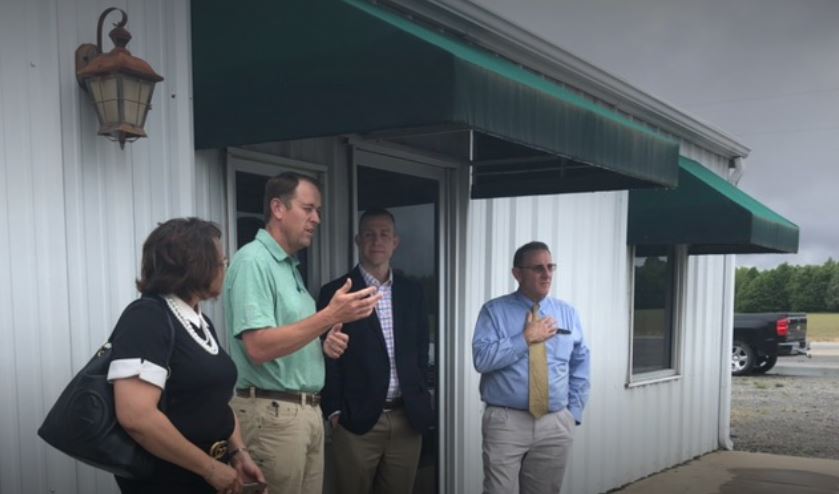 All the action on the Brantley farm is under the awning today
All the action on the Brantley farm is under the awning today
May 08, 2019
LITTLE ROCK, AR -- Agriculture Trade Promotion (ATP) experts with the U.S. Department of Agriculture (USDA) met with Arkansas producers and millers last week to talk about foreign sales of their products and discuss cost-share assistance available to U.S. agricultural exporters through USDA programs.
Mark Slupek, deputy administrator of USDA’s Foreign Agricultural Service (FAS) and Southern United States Trade Association (SUSTA) Executive Director Bernadette Wiltz provided detailed information about how to access the USDA assistance programs designed to help U.S. farmers identify and access global markets.
The ATP program is one of three USDA programs created to help agriculture mitigate the effects of unjustified trade retaliations against U.S. farmers and exporters, and, according to Slupek, “of the $400 million total in export development promotional funding available [including the Market Access Program (MAP), Foreign Market Development (FMD), and ATP], $8 million will go to the rice industry.”
SUSTA was awarded more than $12.5 million in ATP funding over three years to help with new market development by providing cost-share assistance for activities such as consumer advertising, public relations, point-of-sale demonstrations, participation in trade fairs and exhibits, market research, and technical assistance.
“It’s really important that producers take advantage of these programs, especially now with the current challenges with trade,” said Wiltz. SUSTA works with the USDA’s Agriculture Trade Offices all over the world to provide up-to-date information on global markets to southern-region exporters.
Prior to the Export Marketing Summit, Slupek and Wiltz toured Producers Rice Mill in Stuttgart and visited Arkansas rice farmer Dow Brantley’s farm in nearby England.
“While he was on our farm, Mark said he gets ‘reenergized’ visiting with producers,” said Brantley. “I think my fellow rice farmers would reciprocate that feeling – we, too, get energized learning about trade possibilities and USDA funding that exists to help us capitalize on those global markets. If we could just get some cooperation from Mother Nature and get this year’s crop in the ground, I believe we would all be more optimistic about trade prospects.”